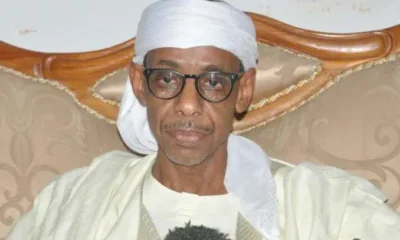Business
Dangote refinery to begin production of petrol in September
Dangote Petroleum Refinery is currently conducting test runs for petrol production, with expectations for full operations to begin by mid-September, according to a report by Reuters.
The report Indicates that the timeline may be subjected to further delay based on notes on Wednesday by IIR Energy, an oil Industry monitor.
IIR informed its clients that “there is a possibility of additional extensions” to the commencement date.
The Dangote Refinery has faced repeated postponements in its petrol production schedule, initially setting a launch for June.
According to the refinery’s CEO, Aliko Dangote, a slight technical delay prevented the June target from being met, leading to a rescheduled start date in July.
However, the refinery also missed the July deadline.
Dangote assured that production would begin in August, but a new report from IIR suggests there might be further delays, with petrol production now expected to commence in mid-September.
Meanwhile, the refinery has begun the supply of jet fuel and diesel to domestic marketers in the country.
In addition, the $20 billion facility started exporting its first jet fuel cargo to Europe.
The first shipment, loaded onto the vessel “Doric Breeze,” left the Lekki Free Zone in Lagos in May to Rotterdam, Netherlands, as per data from S&P Global Commodities at Sea.
Dangote said the refinery is positioned to be one of the best petroleum refineries in the world.
“What we are doing is to be able to export petroleum products to anywhere and compete with any company. By next week, we’ll be producing about ten thousand ppm in terms of diesel which now what’s happening in that we import about 2 to 3 thousand. We will produce the best,” Dangote added.





















